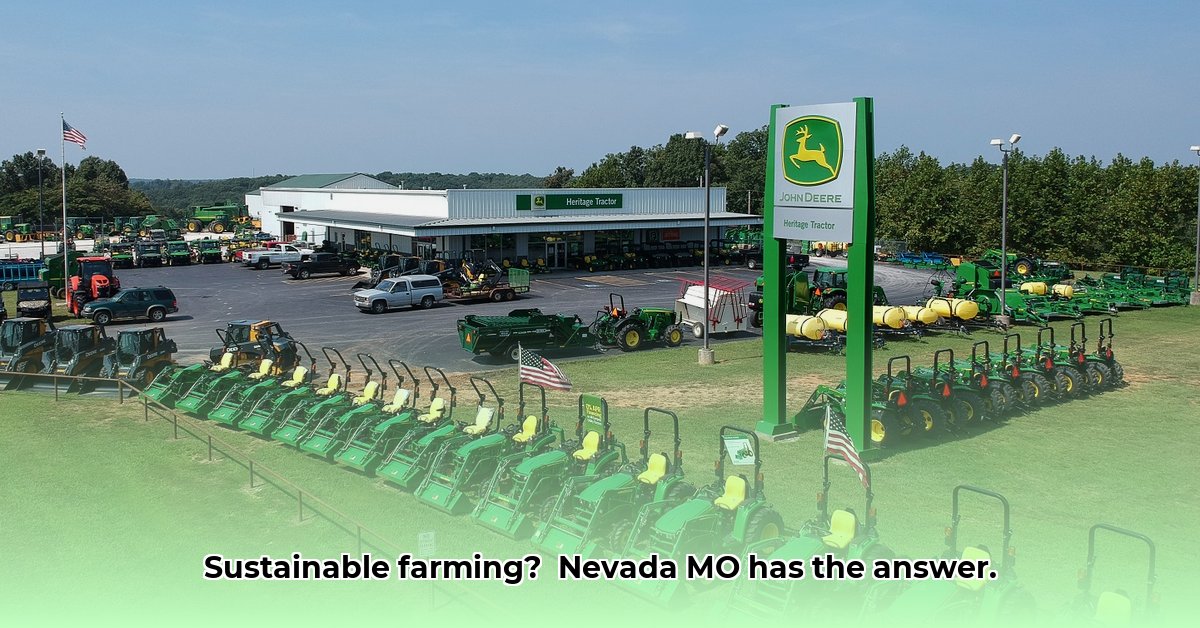
Heritage Tractor's Midwest Expansion: A Focus on Sustainable Agriculture?
Heritage Tractor, a prominent agricultural equipment supplier, recently expanded its presence with 22 new locations across the Midwest, including a significant new facility in Nevada, Missouri. This expansion presents a critical juncture for the company, highlighting the growing importance of sustainable agricultural practices and the need for businesses to adapt accordingly. For smaller farms, consider exploring options like compact tractors. While the expansion signifies growth in market reach and service capabilities, a closer examination reveals a potential disconnect between Heritage Tractor's operational expansion and its public commitment to sustainable farming solutions.
Expansion Details: A Midwest Footprint
The 22 new locations, strategically positioned across the Midwest, represent Heritage Tractor's ambitious plan to increase its market share. The addition of a new facility in Nevada, Missouri, specifically targets a region with a notable concentration of smaller farms and rural communities. While the company's website emphasizes improved parts availability and enhanced service offerings, it lacks explicit details concerning its engagement with sustainable agriculture strategies. This absence presents a significant opportunity for advancement and growth within a rapidly evolving agricultural landscape where sustainability is paramount.
Sustainable Agriculture: A Missing Piece of the Puzzle?
Currently, Heritage Tractor's website does not prominently feature sustainability initiatives or showcase a commitment to environmentally friendly agricultural practices. Although the company offers equipment suitable for no-till farming—a key component of sustainable agriculture—this aspect is not highlighted in their marketing materials. This lack of emphasis on sustainability contrasts sharply with the growing demand among farmers for equipment and services that minimize environmental impact and increase long-term efficiency. The absence of a defined sustainability strategy raises questions about Heritage Tractor's long-term market positioning and its ability to attract environmentally conscious customers. Does this oversight represent a lost opportunity to engage with a critical segment of the agricultural market?
Future Outlook and Recommendations: Cultivating Sustainable Growth
To capitalize on the opportunities presented by its expansion and address the identified shortcomings, Heritage Tractor must adopt a proactive and comprehensive approach to sustainability. Several key steps are crucial for ensuring long-term success:
Comprehensive Environmental Assessment: Conduct a thorough review of all equipment and operations to determine their environmental impact. This assessment should quantify the carbon footprint and identify areas for improvement. (Implementation timeframe: 6 months)
Investment in Sustainable Technologies: Invest in research and development of new, sustainable technologies, potentially partnering with companies specializing in environmentally friendly agricultural equipment. (Implementation timeframe: 12-18 months)
Transparent Communication: Publicly articulate a clear sustainability strategy on the company website and marketing materials. Highlight the environmental benefits of their equipment and showcase case studies of successful sustainable farming practices using Heritage Tractor's products. (Implementation timeframe: 3 months)
Farmer Engagement: Actively engage with farmers to understand their specific needs and concerns regarding sustainability. This feedback can inform future product development and enhance the customer experience. (Ongoing engagement)
Regulatory Compliance: Proactively engage with environmental agencies to ensure full compliance with all relevant regulations and proactively anticipate future changes in environmental legislation. (Ongoing engagement)
Conclusion: A Harvest of Opportunities
Heritage Tractor's expansion into Nevada, Missouri, and the broader Midwest represents a significant investment with substantial potential. However, its success is inextricably linked to its ability to cultivate a strong commitment to sustainable agriculture. By addressing the current lack of emphasis on sustainability, through the strategic steps outlined above, Heritage Tractor can not only enhance its market position but also contribute meaningfully to the future of environmentally responsible farming. The path forward requires a clear and decisive shift towards sustainable practices, fostering a long-term vision that aligns with the evolving needs of the agricultural industry.